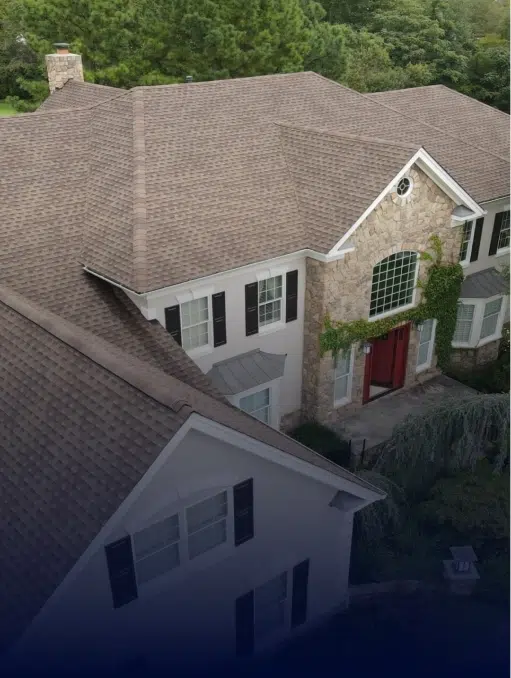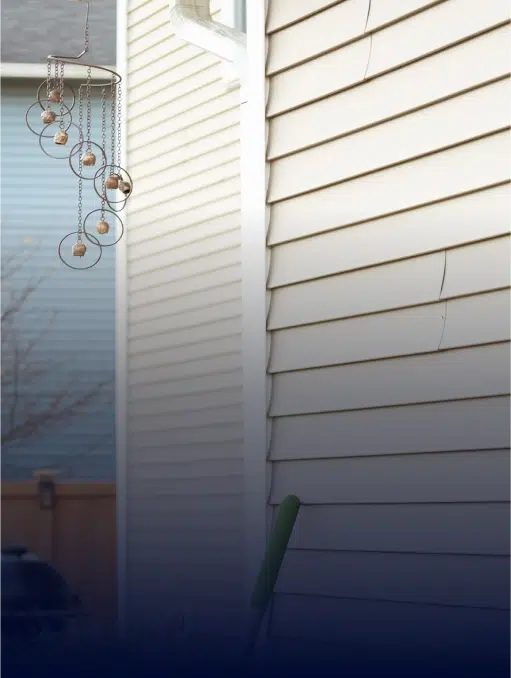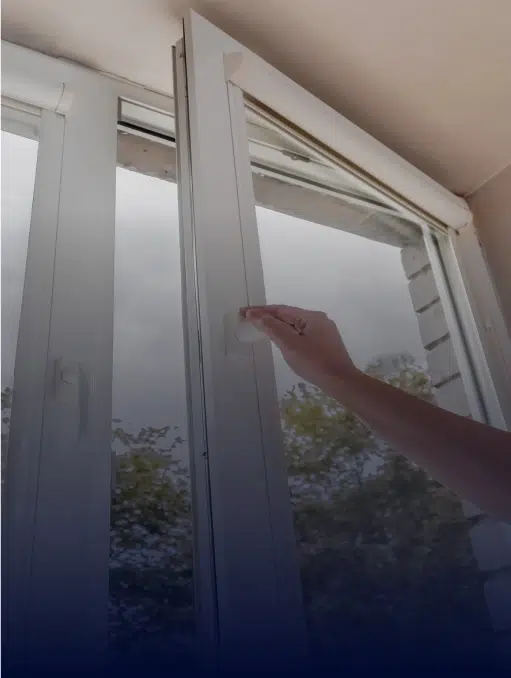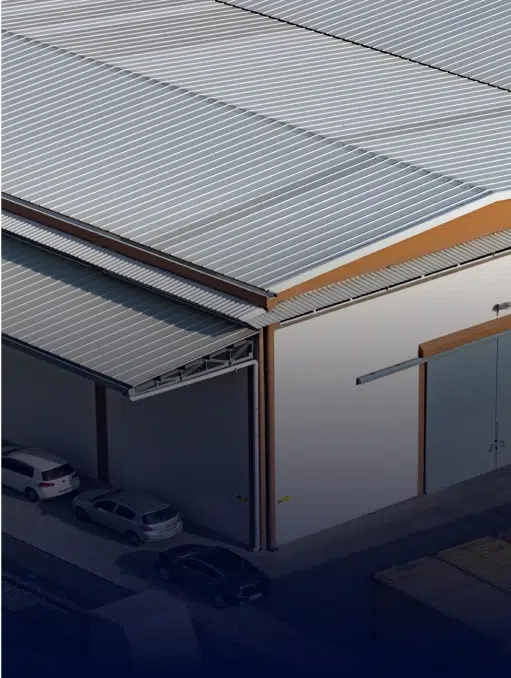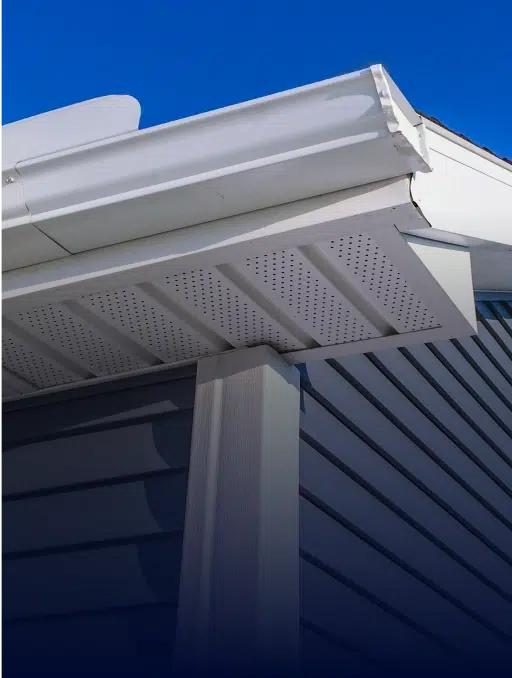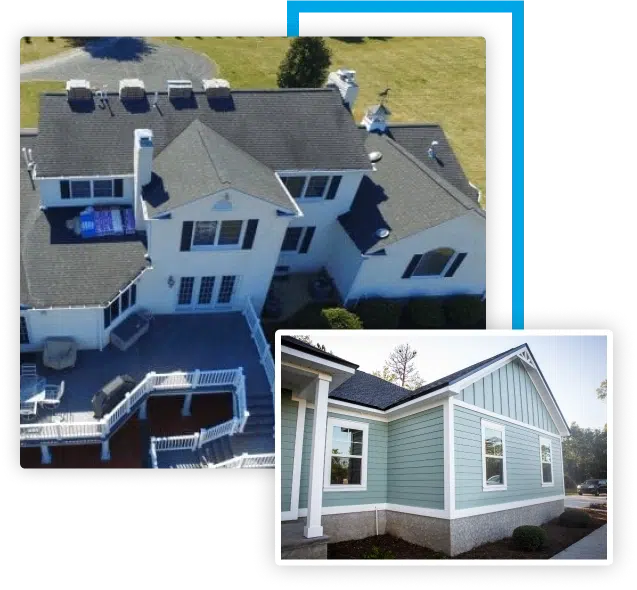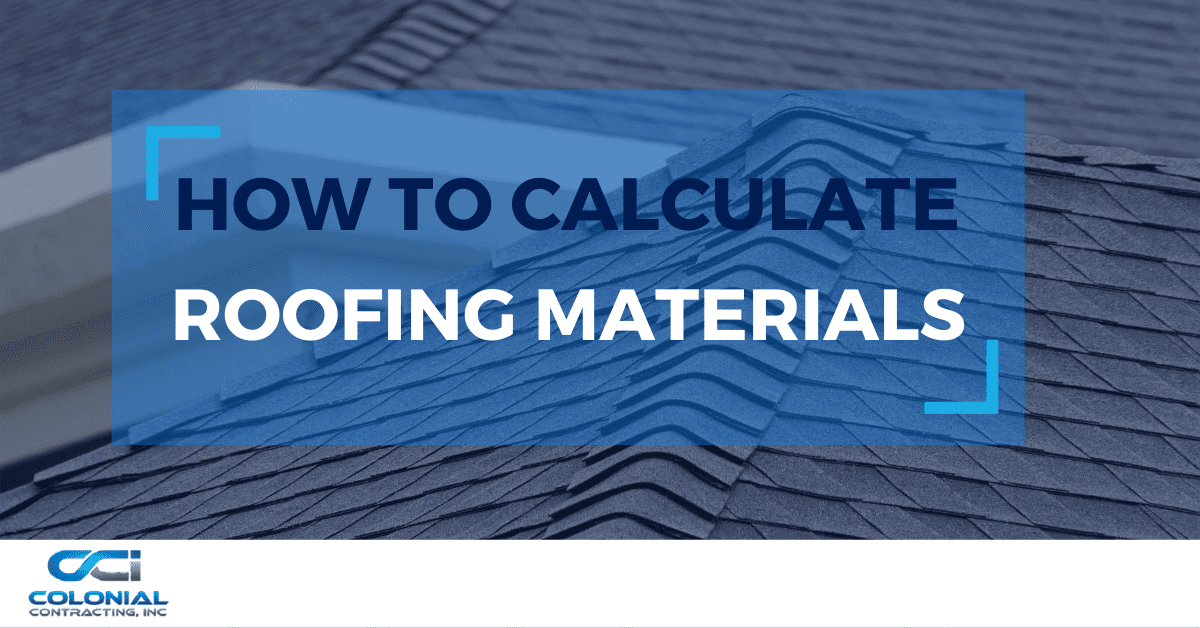
How to Calculate Roofing Materials
You have a few different options to determine the cost of roofing materials for your home, and we’re covering the two most common choices we see below.
Get Professional Help to Estimate Roofing Projects
Do It Yourself – Basic Roofing Terminology
Prefer to leave a roofing contractor out of the mix for now? You can measure your roof area to estimate roofing materials (and other materials) – from every drip edge to bottom edge to roof pitch and horizontal run. We’ll help walk you through what you need to begin calculating the materials and cost for your project.
Let’s start with the basics to measure your roof for a common roofing material, asphalt shingles. One of the first things to understand is how roof shingles are available. Most manufacturers sell shingles by what’s called a bundle and a square. A square of shingles is the amount necessary to cover 100 square feet of your roof. The bundle is simply how the materials are packaged so that the average person can carry them safely.
For example, the average square (to cover 100 sq. ft of your roof) contains three bundles. Heavier shingles may require a few extra square bundles to be manageable. Let’s assume you’ve chosen a standard three-tab strip shingle that has three bundles per square. In that case, there would be 29, 12 x 36-inch shingles to a bundle. This information is the first step necessary to determine the number of bundles you need to order.
Calculating Roof Shingles
Now that we’ve covered the terminology – let’s break down how to start measuring your roof to get the exact number of bundles you’ll need. There are two ways you can measure a new roof, or one that has been recently stripped, and a third way to measure a roof that has existing materials still in place. Let’s look at the first one, known as the measurement method.
The Measurement Method For Roofing Materials
How do you get started? It’s time to get on the roof. Always take the steps necessary to protect yourself when walking on your roof. And if, for any reason, you’re not sure about the condition of your roof, call an expert that can inspect your home safely.
To begin the measurement method, start by calculating individual roof planes. A roof plane is simply the roof surface and might be a pitched, angled, or flat roof.
In this scenario, we explain how to measure a roof with rectangular planes, which is a typical home layout. Simply multiply the length and width of every plane. Once done, you’ll have the individual square footage for each plane and can add them up to get the total for your roof to estimate how many bundles of shingles you’ll need.
If your roof is too steep to investigate safely, you can take measurements from the ground. Start by measuring the length of your home and simply estimate overhangs. Employing a ladder, use a tape measure from the eaves to the ridge. These measurements will help you estimate the total area of your roof but don’t forget to include a few extra bundles. The total shingles needed (or number of squares) will consist of the extra material necessary for starter shingles, ridge caps, waste, and more.
The Sheet Count Method for Roofing Materials
When is the right time to use the sheet count method? If the sheathing on your roof is exposed and your roof material includes four by eight feet panels, this might be a good option to calculate your total roof square footage. You should be able to complete this step from the ground. Here’s how to get started.
Each four-by-eight panel equals 32 square feet. That means that by counting the panels on your roof from the ground, you should be able to come up with a relatively accurate estimate. For ripped or crosscut sheets on the edges of the roof, estimate whether you’ll need a half or quarter sheet. Since we already know that a square covers 100 square feet of your roof, you can assume that one bundle (for the average shingle weight) will cover 33.3 sq. ft. That’s close enough that you can estimate one bundle to cover the square footage of a sheet (32 sq. ft). If you choose a shingle option with four or five bundles per square, simply follow the same formula using the correct numbers for your material choice. Don’t forget to add a little extra so you’ll have shingles left for various factors mentioned above, like waste and using a starter shingle (or shingles), etc.
The Shingle Count Method for Roofing Materials
Are your old shingles still in place? If so, the shingle count method is a great option. Start by measuring the eave length (repeat for every roof plane). You can do this from the ground by following the steps in the measurement method – measure your house length and add in overhangs. If the old shingles are three-tab, count the tabs on the ridges and eaves. One tab is one foot, so you can easily calculate the length in feet. Count the courses of shingles from top to bottom and multiply each course by 5 inches (to account for exposure). Next, divide by 12 to account for the rake length. Then multiple the length of eaves by rake length. The final number is the total footage of the roof. Keep in mind; this calculation works if the existing shingles are 12 by 36 inches, which is a standard size.
Pro Tip – Additional Costs for Other Roofing Materials
A roofing job requires more than just shingles. Underlayment and nails are two common materials you should include in your calculations.
Roof Underlayment Costs
One significant component of any roofing project is underlayment. Underlayment is the waterproof material that goes under your shingles. This barrier acts as a protective layer for your home against water and more. One roll of underlayment typically covers four squares. So, once you measure the length and width of your roof to determine the total square footage, you can quickly determine how many rolls of underlayment you’ll need.
Nails Costs for Roofs
In general, most roofing recommendations suggest using four nails per roofing shingle. This estimate is for the main area of roofs. Add five nails per square for the first row on any roofing project. You can plan for 320 nails for every 100 square feet when using these assumptions. If you’re in high wind areas and plan to use five nails per shingle, adjust for 480 nails for every 100 square feet.
Ready to get started?
As you might imagine, there are many factors when estimating the cost of a roof installation. While we’ve covered the basics, calculating how many squares you’ll need and basic terminologies like a roofing square, bundles of shingles, and measurement methodologies, there is a lot we can’t cover that affects the number of squares for your project.
The pitch of your roof is one significant factor that can play a big role in cost. For example, the pitch is a roof’s vertical rise divided by its horizontal run. Roof pitch is just one factor that an expert can help you measure to get an accurate expectation of costs.
If you don’t want to worry about things like roof pitch, width, shingles per square, and more – give our team a call. We’d be happy to provide a no-cost, no-obligation roof inspection to help you get a new installation for your home.

